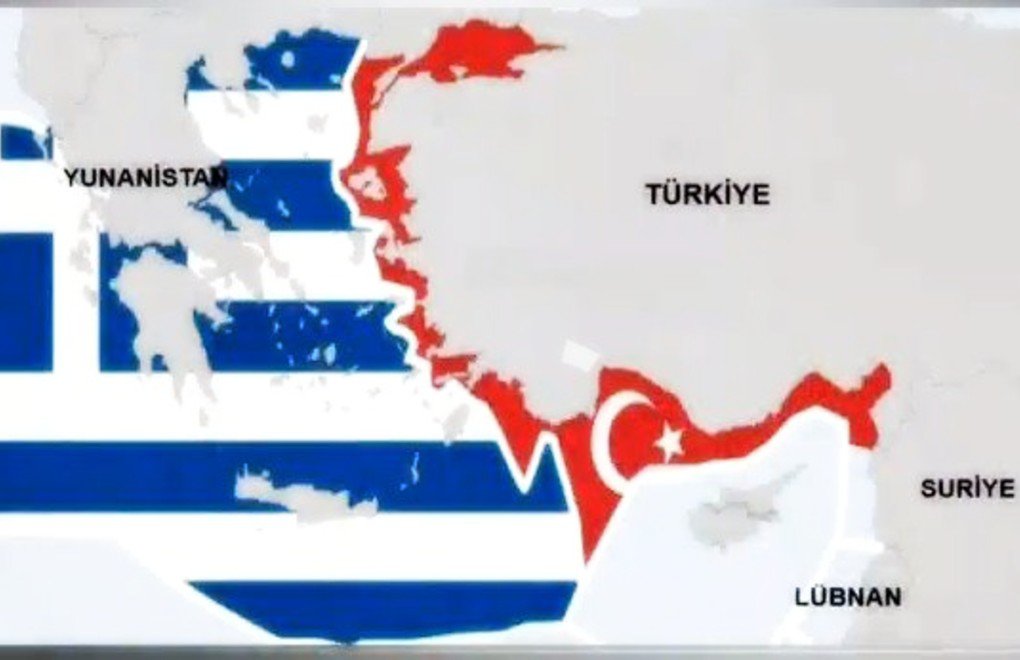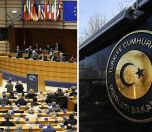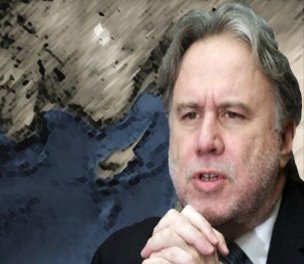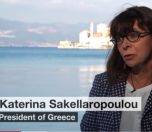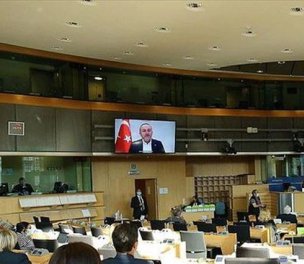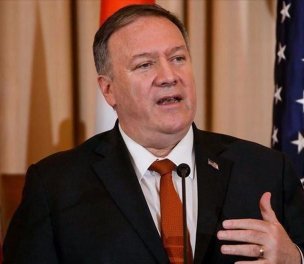Click to read the article in Turkish
The US does not consider the Seville Map on maritime boundaries of Greece and Turkey as a document with legal significance, the country's embassy to Turkey said on Twitter last night (September 21).
"With respect to the 'legal status' of the Seville map, the United States does not consider the Seville Map to have any legal significance. We understand the European Union does not consider the Seville map to be a legally binding document," it said.
"Maritime boundaries are for the states concerned to resolve by agreement on the basis of international law. The United States strongly supports good faith dialogue and negotiation and encourages Greece and Turkey to resume exploratory talks as soon as possible," the statement noted.
There has been much commentary in the Turkish press regarding the so-called “Seville Map”... pic.twitter.com/cCw6yYJ1Md
— U.S. Embassy Turkey (@USEmbassyTurkey) September 21, 2020
What is the Seville Map?
In the early 2000s, Juan Luis Suárez de Vivero and Juan Carlos Rodríguez Mateos from Seville University prepared a map to clarify exclusive economic zones (EEZ) of Turkey and Greece in the Eastern Mediterranean and Aegean Sea.
Prepared upon a request by the European Union (EU), the map determines Greece's continental shelf based on its islands in the Aegean Sea, limiting Turkey's rights to its territorial waters except from the Gulf of Antalya.
Minister of Foreign Affairs Mevlüt Çavuşoğlu said during a program on CNN Türk that negotiations wouldn't be possible based on the Seville Map.
"They told us, 'Would you temporarily send the [seismic research] ship to the non-problematic area? We wondered what they meant. The triangle area [Gulf of Antalya]. How can you say that? Do you know what this means? This means accepting the nonsensical Seville Map," he remarked.
"Greece must state that it doesn't accept this map. As long as this map exists, we can't solve this. There won't be negotiations either. You can't achieve results without negotiations."
Turkey's position in the Aegean dispute
Turkey's views regarding the Aegean issue is as follows, according to the Ministry of Foreign Affairs:
Turkey is determined to create a zone of peace, prosperity and stability in the region with its neighbors. Greece is no exception to this policy. Turkey is committed to good-neighborly relations with Greece and in this respect supports the dialogue process.
Turkey is resolved to explore every avenue to attain a comprehensive and lasting settlement to all differences and problems between the two countries, especially those related to the Aegean Sea.
The Aegean Sea should be a sea of friendship and cooperation between Turkey and Greece.
A possible settlement on the Aegean issues will only be functional and lasting if it is built on a common denominator, that is respecting fundamental rights and legitimate interests of both countries.
Greece advocates that there is no problem in the Aegean between Turkey and Greece other than the delimitation of the continental shelf which should be resolved only through recourse to ICJ. This position of Greece namely "one problem-one solution" does not reflect reality at all.
Therefore, acknowledging only one problem and neglecting the others as well as advocating only one means for a solution in a selective manner is not a viable option for the peaceful settlement of all these issues. To opt for such a course of action would no doubt leave the other outstanding issues aside unresolved.
With this understanding, Turkey believes that all problems should be addressed as a whole and stands ready to continue to work towards settlement of the Aegean issues through peaceful means in accordance with international law.
Timeline of the Eastern Mediterranean crisisThe tension between Turkey and Greece over their right to explore energy resources in the Eastern Mediterranean has seriously escalated over the last months. The latest developments leading to this escalation are briefly as follows: On July 21, Turkey issued its first Navtex alert for Oruç Reis seismic vessel's exploration activities in the Eastern Mediterranean. On July 28, Turkey announced after Germany's diplomatic efforts that it suspended hydrocarbon exploration activities and stated that it was ready to talk with Greece. On August 6, Greece and Egypt signed a maritime border agreement. On August 10, Turkey announced that its drillship Oruç Reis would resume energy exploration in the Eastern Mediterranean. It said the ship will continue its work along with the ships Cengiz Han and Ataman until August 23. On August 14, the EU foreign miniters discussed the crisis at an extraordinary meeting, calling on Turkey to end hydrocarbon exploration activities in contested waters. On August 16, Turkey issued a Navtex, announcing that its drill ship Yavuz will continue its work exploring for energy resources off the island of Cyprus. On August 23, Turkey issued another Navtex, stating that the Oruç Reis vessel would continue its activities until August 27. On August 24, Greece held joint naval drills with the US in the south of Crete island. One day later, Turkey conducted naval exercises with Italy. On August 25, Germany's Minister of Foreign Affairs Heiko Maas visited Athens and Ankara to encourage the two countires to have direct talks. On the same day, Turkey held replenishment exercises with Italy in the Eastern Mediterranean. On August 26, US President Donald Trump had phone talks with President Recep Tayyip Erdoğan and Prime Minister of Greece Kyriakos Mitsotakis, urging them to reduce tensions and start dialogue. On the same day, Turkey and the US conducted joint maritime exercises. On August 27 and 28, EU foreign ministers met with the Eastern Mediterranean crisis on the top of their agenda. The Union's foreign polict head Josep Borrell said after the meeting that Turkey's ships might be sanctioned if they continued hydrocarbon activities. Turkey's Ministry of National Defense on August 28 announced that it intercepted six F-16 fighters planes of Greece, which it said were closing in on the area where Turkey issued a Navtex. On September 1, the US lifted the arms embargo on Southern Cyprus. On September 2, Turkey issued two Navtex alerts for Russia's gunnery exercises in the Eastern Mediterranean. It was stated that Russia would conduct exercises in two different areas that correspond to Turkey's hydrocarbon exploration activities on the east and west of the Cyprus island. On September 3, NATO Secretary General Jens Stoltenberg said, "Following my discussions with Greek and Turkish leaders, the two Allies have agreed to enter into technical talks at NATO to establish mechanisms for military deconfliction to reduce the risk of incidents and accidents." On September 4, Prime Minister of Greece Kyriakos Mitsotakis said that Greece would only enter into a dialogue with Turkey if it "stops provocations" in the Eastern Mediterranean. Shortly before this statement, Turkey's Foreign Ministry stated, "Turkey is ready to enter into dialogue with Greece without any preconditions." On September 10, military delegations from Turkey and Greece had technical talks at NATO headquarters to prevent military engagement. On Septemebr 15, issuing a new NAVTEX alert for the Chios Island of Greece, Turkey argued that Greece had militarized Chios Island in violation of the 1923 Lausanne Peace Treaty. The military delegations from the two countries held the second technical meeting. On September 17, the European Parliament warned Turkey of sanctions if it continues its hydrocarbon exploration activities. On September 18, Turkey summoned Greece's envoy over a newspaper headline about President Erdoğan. On September 21, the US stated that it does not consider the Seville Map on the maritime borders of Turkey and Greece as a document that has legal significance. |
(PT/VK)




